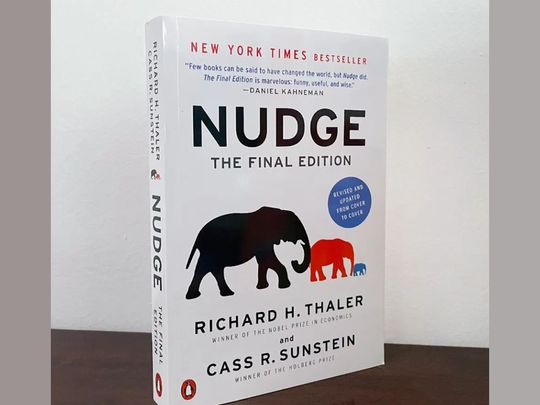
"Nudge: Improving Decisions About Health, Wealth, and Happiness" by Richard H. Thaler and Cass R. Sunstein offers a captivating exploration of how subtle changes in the way choices are presented can profoundly impact decision-making processes.
Through the lens of behavioral economics and decision-making psychology, the authors delve into the concept of nudging individuals towards better choices without restricting their freedom.
Thaler and Sunstein argue that every decision-making environment is inherently biased, as choices are framed in a particular way that influences outcomes. They highlight the power of small details in shaping behavior, emphasising that even seemingly insignificant factors can have significant impacts on decision-making.
From the layout of a restaurant menu to the options presented in a retirement savings plan, the way choices are framed can nudge individuals towards certain decisions.
Strategic nudges
The authors challenge the traditional notion that individuals should be left entirely to their own devices in decision-making processes.
Instead, they advocate for strategic nudges that guide individuals towards choices that are in their best interests, as well as the interests of society as a whole.
They argue that in many important areas of choice, such as healthcare and financial planning, it is not a matter of whether to bias decisions, but rather how to do so in a direction that promotes positive outcomes for everyone involved.
Thought provoking
Thaler and Sunstein's insights have profound implications for policy-making, particularly in areas where individual decisions have broader societal impacts. They suggest that by understanding the principles of choice architecture, policymakers can design environments that make it easier for individuals to make choices that align with their long-term goals and values.
This approach not only benefits individuals by helping them make better decisions, but it also contributes to the overall well-being of society by promoting positive outcomes and reducing negative externalities.
"Nudge" offers a thought-provoking examination of human decision-making and the ways in which choice architecture can be leveraged to promote better outcomes for individuals and society as a whole.
With its accessible writing style and compelling examples, this book is sure to spark discussions and inspire readers to reconsider how they approach decision-making in their own lives.
Ahmad Nazir is a UAE based freelance writer












